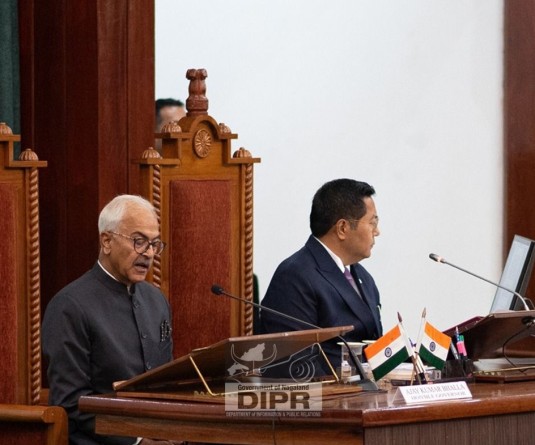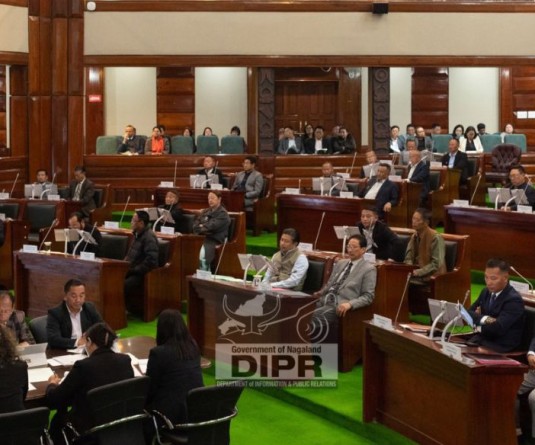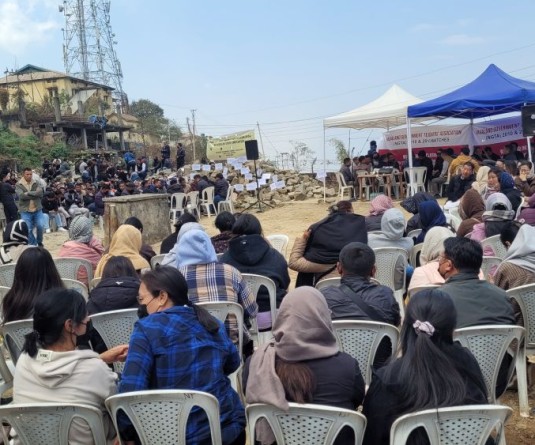
SC issues notice, hearing on September 14
Phek, August 1 (MExN): The Chakhesang Public Organisation (CPO) has filed a writ petition in the Supreme Court of India challenging the Centre’s February 28 order which sought to resume the delimitation exercise in the State of Nagaland based on 2001 census figures. It viewed that the impugned order “is in violation of the principle of ‘last census rule’ as enshrined in Article 82 as well as Article 170 of the Constitution of India.”
The impugned order rescinds the earlier ‘deferment order’ dated February 8, 2008, by which the delimitation exercise in the State of Nagaland was deferred.
The CPO contended that the impugned order is arbitrary, “considering that the reasons which formed the basis for ‘deferment order’ namely, law and order, disturbance to tribal equilibrium, ongoing peace talks etc., continue to exist and there is no change in circumstances on the ground.”
It justified its claim stating that the centre had on June 6, invoked powers under Section 3 of the AFSPA, 1958, and declared the entire state of Nagaland as ‘disturbed area’ for a period of six months.
Further, it pointed out that the impugned order is in violation of the principle of ‘last census rule’ as enshrined in Article 82 as well as Article 170 of the Constitution of India while adding that Section 11 (4) of the State of Nagaland Act, 1962, also stipulated that the delimitation exercise would be based on the latest census.
“The object of delimitation would best be served in case the last census i.e. 2011 census figures are made the basis for the delimitation exercise or the census of 2021 which is currently underway as the basis,” it suggested.
The petitioners also cited the “unique history of political conflicts” in the state of Nagaland and pointed out that several tribes have their distinctive language, culture and customs because of which the state enjoys special constitutional guarantee under Article 371A of the Constitution of India.
It said that the impugned order “would certainly disturb the tribal equilibrium and lead to abrogating their constitutional rights,” and contended that the order is ultra-vires (acting or done beyond one's legal power or authority) of Article 371A.
Among others, the petitioners pointed out that “the 2001 census figure for the State of Nagaland is marred by several fallacies and abnormalities which have not been corrected even after 14 years of protracted litigation,” and “unnatural.”
Despite repeated representations, communications and even after Nagaland State Assembly of passing a resolution against it, no exercise was undertaken to correct the discrepancies in respect of census figures for the State of Nagaland. Notwithstanding the same, the impugned order has been issued resuming the delimitation exercise on 2001 census figures which is nothing short of a legal somersault.
It also contended in the Writ Petition that the Delimitation Commission constituted pursuant to the impugned order void ab initio (from the beginning) in view of Section 8A of the Representation of People (RP) Act, 1950 which “specifies that in case of the deferment order being rescinded, the delimitation exercise in respect of the Assam, Nagaland, Manipur and Arunachal Pradesh shall be conducted by the Election Commission.”
“The amendment to Section 8 as well as Section 7 of the RP Act, 1950 provides a complete code in so far as the delimitation of Assam, Nagaland, Manipur and Arunachal Pradesh are concerned. Thus, the constitution of the new Delimitation Commission under the Delimitation Act and assigning it with the task of delimitation is without any authority in law and void ab initio,” it claimed.
As such, the petitioners moved the apex court to issue a writ of mandamus directing the delimitation exercise to be conducted based on the 2021 census figures.
The Supreme Court, on July 30 admitted the petition and issued notice to the Union of India, Ministry of Home Affairs, Delimitation Commission, State of Nagaland, Home Department and Election Commission and fixed the next hearing on September 14, the CPO stated.






